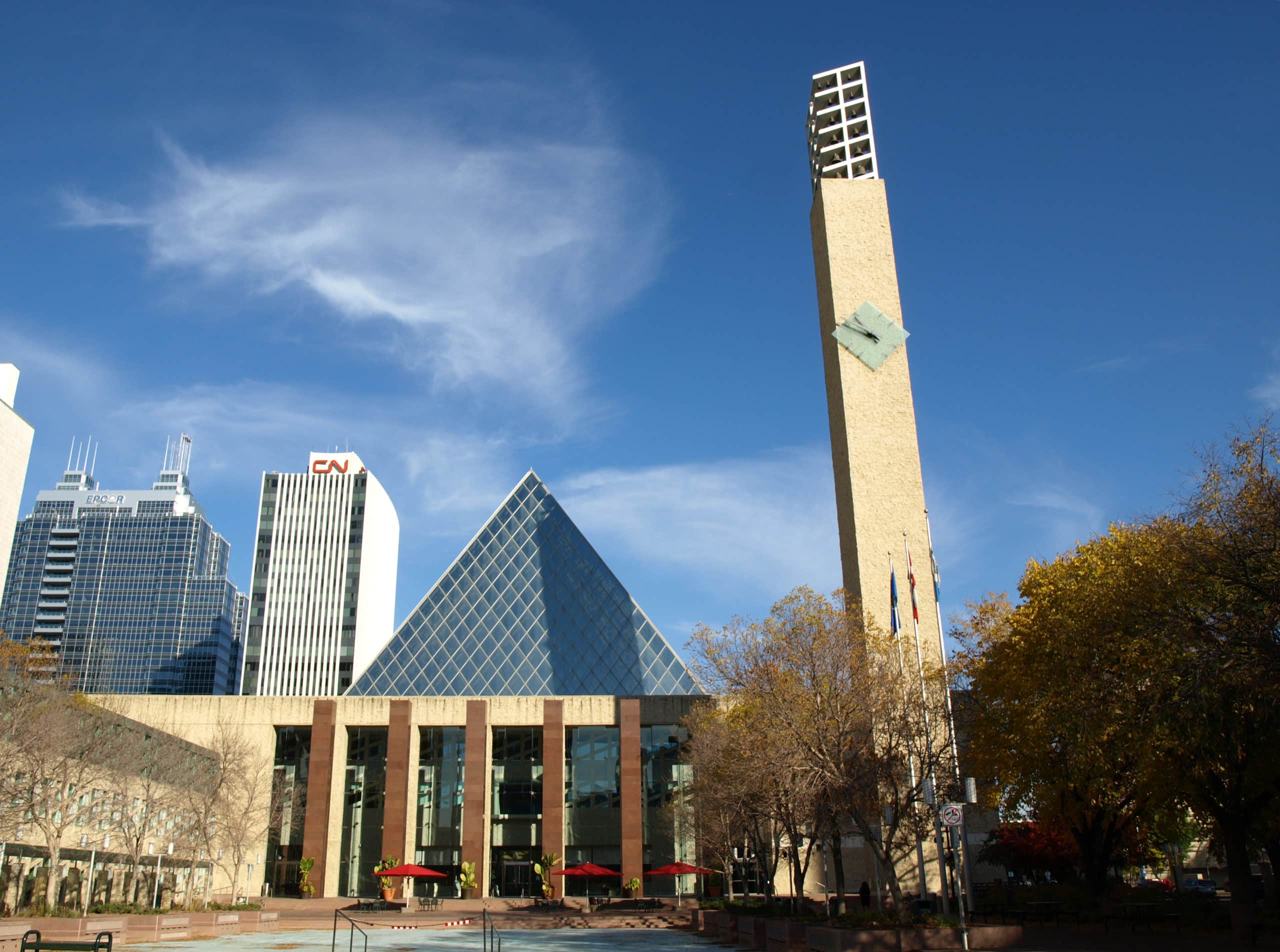Ward councillors share priorities
On Nov. 1, the newly elected city council discussed with administration the concerns they heard while campaigning.
Public services, green spaces, land development, and road clearings were popular topics. However, housing and homelessnes are priority concerns in Ward Métis, says Coun. Ashley Salvador.
“People are looking for more systemic, compassionate solutions,” Salvador says. “Permanent supportive housing in particular […] is obviously a direction we’re moving in, being able to lean into that, in recognition that mental health supports, addiction supports, employment supports need to be wrapping around that housing model so folks have all the necessary supports they need to start to recover.”
Erin Rutherford, councillor for Ward Anirniq, notes there is an inequity with the distribution of services when it comes to the north side. According to Rutherford, many residents believe higher income neighbourhoods are prioritized. Salvador says a decentralized model of support is also critical. In her campaigning, people were displeased with the way supports and services are placed in the city.
“Historically we’ve almost concentrated a lot of those social supports and services in particular neighbourhoods,” Salvador says. “Being able to spread that out not only is it good for those communities, but it actually helps with recovery, being able to integrate folks into neighbourhoods so people are a part of a community.”
Anne Stevenson, councillor for Ward O-day’min, says encampments are becoming an issue for community members.
“Housing and homeslessness was absolutely, at least two-thirds of people, their top of mind issues,” Stevenson says. “There’s some real impacts, ongoing impacts, for residents through the presence of encampments. I’m going to flag Dawson Park in particular. Neighbours there are facing significant risks from fires and it really struck me on a tour there’s too the significant ecological damage that is occurring in that situation.”
Salvador discussed the issue of problem properties and vacant derelict sites in Alberta Avenue and Parkdale-Cromdale, citing the high numbers of fires and suspected arson in the area recently.
“We need to take a close look at that and start looking at systemic solutions because that is just not okay,” says Salvador. “People are not feeling safe in their own communities.”
Stevenson says problem properties are an issue in Ward O-day’min as well, but notes the impact it has on neighbours.
“They’re the ones having to call in the issues and there [is] not being any follow-up and the real risk of retribution they face, y’know, from having their neighbours shouting at them to having their tires slashed,” Stevenson says.
According to some councillors, action for climate change is another important issue. Salvador says this issue was very prominent in Ward Métis and people want to know if city council is going to follow through on the plans set through the EnergyTransition Strategy. Edmonton’s Community Energy Transition Strategy and Action Plan was approved by the previous council in April 2021.
Salvador also wants to revitalize mature communities in Ward Métis because there has been a loss of key amenities, such as grocery stores closing, schools closing, and recreation centres up for closure every budget cycle.
“101 Ave was a topic of conversation, folks really want to see that revitalized,” Salvador says. “I think there has been a huge push by the community to get everyone on board around a vision for that street that’s more walkable, more pedestrian oriented, more retail.”
Salvador says public-enacted transit ties in nicely with neighbourhood revitalization and emphasizes the need for safe, active modes of transportation so that people feel comfortable walking and biking around their communities. Both Salvador and Stevenson say the bus network redesign impacts seniors accessing transit on demand.
Public safety and safe streets is a concern for residents in both Ward Métis and O-day’min. Stevenson says residents feel that there is nobody to turn to when they’re in danger, and explains the Chinatown Transformation Collaborative Society of Edmonton spends $10,000 a month of their own funds for their own private security firm because they weren’t receiving responses to violent attacks against their businesses. Stevenson uses the Downtown Business Association piloting their safety initiatives as another example.
“These community-based efforts […] are incredibly successful and I think fantastic approaches to safety in our neighbourhoods,” says Stevenson. “But again feeling they don’t have the resources they need to be truly effective.”
Another priority for Salvador is the opioid crisis.
“People are dying every day in our city,” Salvador says. “That has a huge impact on the safety of the district; not only is it about the health and wellness of community members, but it’s also about the viability of our main streets, our economy.”
Administration will get back to city council in two weeks after analyzing what council wanted them to look at, reporting back about what is and isn’t being done, and creating a plan about what can be achieved.







